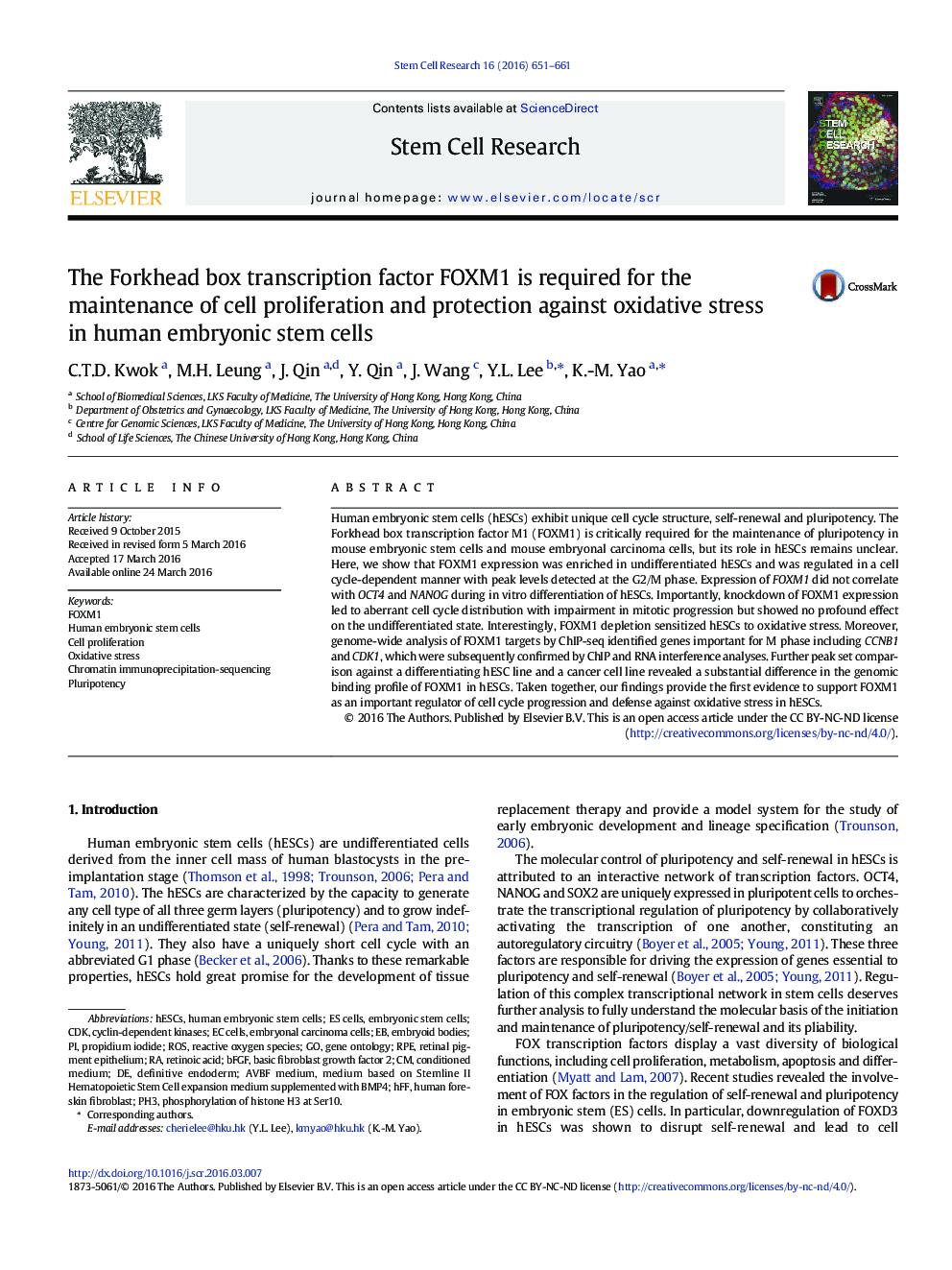| Article ID | Journal | Published Year | Pages | File Type |
|---|---|---|---|---|
| 2094025 | Stem Cell Research | 2016 | 11 Pages |
•FOXM1 is expressed in undifferentiated hESCs with peak levels at G2/M phase.•FOXM1 depletion causes mitotic defect and delays G2/M progression in hESCs.•FOXM1 downregulation does not induce rapid exit of undifferentiated state in hESCs.•FOXM1 depletion sensitizes hESCs to oxidative stress.•Genomic binding profile of FOXM1 in hESCs differs substantially from cancer cells.
Human embryonic stem cells (hESCs) exhibit unique cell cycle structure, self-renewal and pluripotency. The Forkhead box transcription factor M1 (FOXM1) is critically required for the maintenance of pluripotency in mouse embryonic stem cells and mouse embryonal carcinoma cells, but its role in hESCs remains unclear. Here, we show that FOXM1 expression was enriched in undifferentiated hESCs and was regulated in a cell cycle-dependent manner with peak levels detected at the G2/M phase. Expression of FOXM1 did not correlate with OCT4 and NANOG during in vitro differentiation of hESCs. Importantly, knockdown of FOXM1 expression led to aberrant cell cycle distribution with impairment in mitotic progression but showed no profound effect on the undifferentiated state. Interestingly, FOXM1 depletion sensitized hESCs to oxidative stress. Moreover, genome-wide analysis of FOXM1 targets by ChIP-seq identified genes important for M phase including CCNB1 and CDK1, which were subsequently confirmed by ChIP and RNA interference analyses. Further peak set comparison against a differentiating hESC line and a cancer cell line revealed a substantial difference in the genomic binding profile of FOXM1 in hESCs. Taken together, our findings provide the first evidence to support FOXM1 as an important regulator of cell cycle progression and defense against oxidative stress in hESCs.
